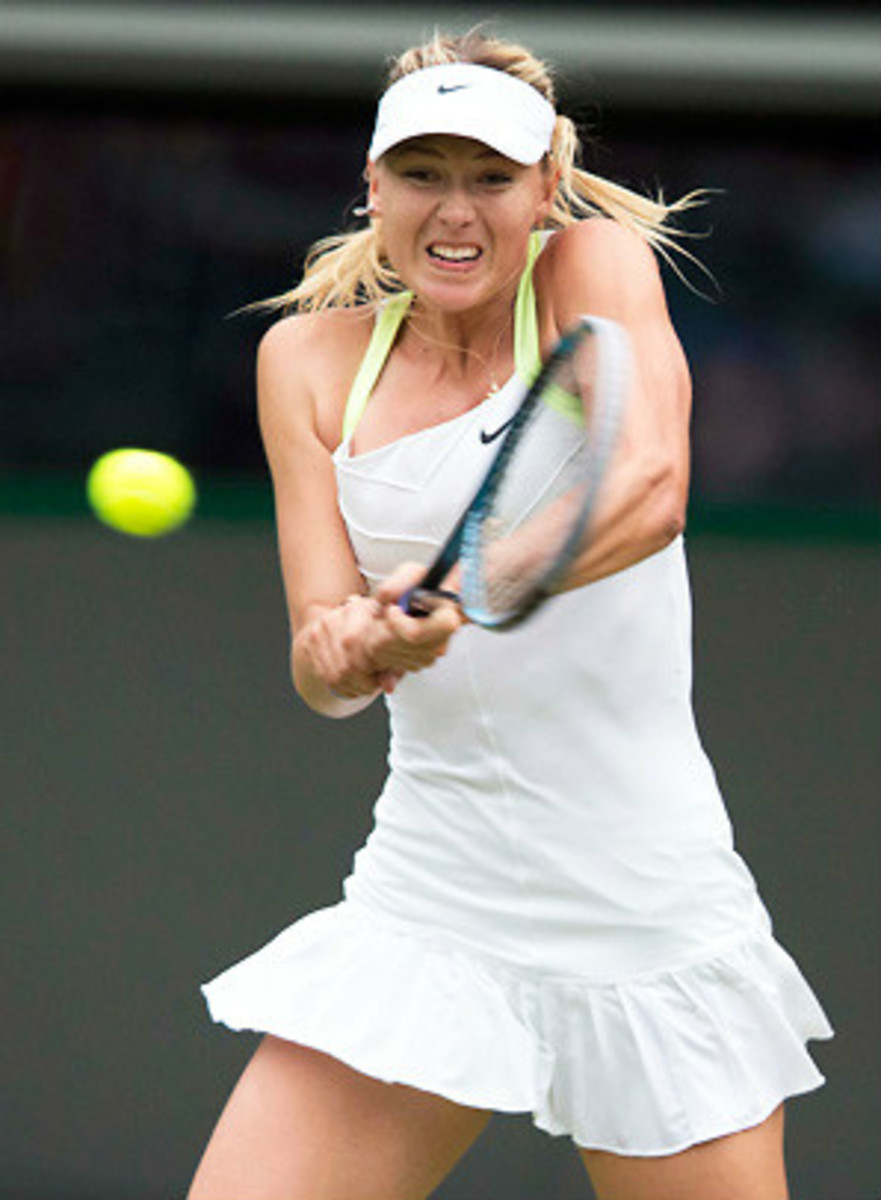Back on top: Resilient Sharapova proves worthy of WTA's top billing
Sharapova is all of that. Even at the times when she appears most vulnerable.
It was only a second-round match, but Sharapova found herself in crisis at Wimbledon over the course of a two-day, rain-suspended match that ended Thursday with a 7-6 (3), 6-7 (3), 6-0 victory over Bulgaria's Tsvetana Pironkova.
So much is revealed on that scoreboard: Sharapova performing in the clutch, letting her opponent back into the match, then establishing a one-sided dominance that ended all arguments. Pironkova fought bravely and earned her due respect from the Court 1 crowd, only to be rendered helpless at the finish.
Pironkova is a reputable player, ranked No. 38 in the world, but we never seem to hear of her beyond Wimbledon. She positively comes alive on the grass courts of the All England Club, beating Venus Williams in each of the past two years as she reached the semifinals in 2010 and the quarters last year. "If she played on grass 365 days a year, she'd probably be top five," Sharapova said. "She does so well against top players here."
One can never be quite sure, however, about Pironkova's nerves. Too often, in times of duress, she looked across the net to a player who was saying in effect, I'm Maria Sharapova and you're not. That's when the Bulgarian's shots began to lose force and Sharapova simply willed her way into command.
A great example came during Wednesday night's first set. Serving at 5-6, Sharapova got down 0-40 and surely was facing an uphill struggle. She responded with three blistering first serves, winning each of the points, and eventually got herself into the tiebreaker. This is why fans love Sharapova, even if they've got the sound turned down, because she has character. She stands up to a crisis. She loves the thrill of a good fight.
And so continues a year that has seen Sharapova take the final steps in her long, arduous comeback from shoulder surgery in 2008. For a while, it was only frustration: losing finals in the first three big tournaments of the year (Australian Open, Indian Wells, Miami), twice to then-No. 1 Victoria Azarenka. A bit of animosity was building between the two, and when Sharapova broke through at Stuttgart -- featuring their infamous "shoulder bump" on a changeover -- she knew she'd established a mental edge in that rivalry.
Then came the title in Rome, her claim to the career Grand Slam at Roland Garros, and the jump to No. 1. These are special days for the 25-year-old Sharapova, and she was in rare form during Thursday's postmatch press conference.
As one of the leading "shriekers" on tour, it must be difficult for Sharapova to respond to any question about the issue. Asked her reaction to the WTA's intent to curtail such noise at the junior level, and whether she could make an adjustment herself, she gave the best possible answer:
"Certainly not now. Not since I've been doing it since I was 4 years old. It's impossible to change something when you've been playing a sport for over 20 years. But it's something... I mean, I've spoken to Stacey (Allaster, the WTA's chief executive) in numerous conversations. She's the first person that has sat down with a lot of players and coaches, sports psychologists, analysts, and really reviewed what can be done. I'm really happy with the system she put forth, going to the juniors, the academies, and putting a system in place. I think it's extremely smart."
She was then asked about the comments of Gilles Simon, an ATP players-council member who resents the notion of equal prize money because, in essence, the men play longer matches and "our game is more attractive than the women's right now."
"Well," said Sharapova, "we fought so long to get there, overcoming such a big challenge, and no one really supported us. We're all really proud of it. It's made the sport bigger."
And then the zinger: "There are a few more people that watch my matches than his, so..."
Touche. And case closed.





